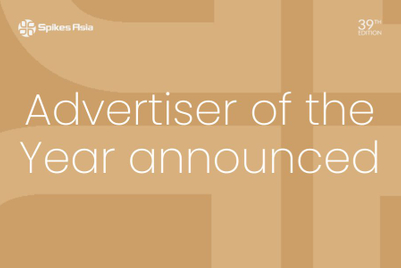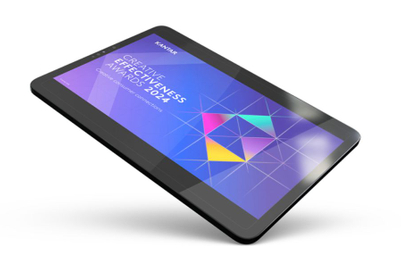
The Kancil Awards will undergo another major revamp this year. It will be rebranded as a two-day creative festival with talks and workshops modelled after the likes of Cannes Lions and Adfest, said the programme's creative council chairman, Alvin Teoh.
The festival is slated to take place July 26 and 27.
Teoh, who is ECD at Naga DDB Tribal, is enthusiastic about the festival elements of the awards as well as a few new award categories. Notably, all channel-based categories will be awarding the Culture Kancils for best use of cultural insights as well as a ‘Kancil for Good’ award. Both awards place a heavy emphasis on solving problems, while the cultural awards are created to celebrate the diversity of the social fabric in Malaysian society. The latter change comes at a time when the nation is trying to shift from divisive racial politics following its historic election in May.
“Often we don’t use [culture] creatively to solve anything, or we are very shallow with the ways we look at culture," Teoh told Campaign Asia-Pacific. "It’s always the Malays, Chinese, Indians [the three major races in Malaysia], but there is so much beauty in the layers of the culture that is untapped."
He maintained that there are enough examples of work produced in Malaysia that fit the category, while at the same time, not all work should be racially inclusive. A mature piece of work is simply one that is strongly based on cultural insights, Teoh said.
The overhaul of the 4A’s top local honours comes after the introduction of channel-based categories and online viewing of submissions in 2017 to address a plagiarism scandal involving Dentsu Utama in late 2015. The Kancils took an interval in 2016 as a result of the controversy, while Dentsu Utama resigned from the 4As in protest of the revocation of eight of its awards.
Teoh stressed that the revamped programme is about looking forward. He spoke only reluctantly about the past events, and asserted that the incident moved the industry in a positive direction.
“The year (2016) was filled with bad news, plagiarism, scams, it’s so shameful and a very dark time for the industry," Teoh said. "This is an attempt to learn lessons from those days and not to repeat that."
Although Teoh could not confirm whether public viewing of submissions will be continued this year, he said such measures and the public reckoning from the Dentsu Utama episode show that the industry is emerging from the shadows of the scandal. The creative council did not flag plagiarism from the entries last year.
“Most of the local ECDs are on the same page," he said. "We all know the damage that has been done because of the individualistic pursuit of awards for the sake of awards. It’s very unhealthy if everyone is playing the network game, everyone has come to terms with that."
As an added measure to improve diversity of voices and transparency, independent agencies such as Fisherman Integrated and Ensemble Worldwide are joining the creative council, Teoh added.

Gigi Lee, who is the head of jury from TBWA\Group Malaysia, said having the Culture Kancils and 'Kancil for Good' under each category allows the council to focus on commercial creativity, the industry's reason for being, while still ensuring there is space to celebrate impactful, legitimate creativity for causes. "Having just one just one subcategory per category also means that the competition and scrutiny would naturally be harder," said Lee.
Emir Sharfri from Y&R and Iska Hashim from Star Reacher will serve as deputy head of jury and deputy chairman of the council, respectively.
On ‘Kancil for Good’, Teoh strongly feels that it should not attract award-bait entries. “Sadly, a lot of people use causes like animal abuse and the refugees [for example] as a means to win awards," he said. "I don’t think they give a shit about solving any problem, it’s very shameful and unethical." The creative council hopes to assess the entries based on UN's 17 sustainable developmental goals and is planning to get a UN representative on board for the judging of this category, Teoh explained.
On how clients would respond to the new award items, Teoh said the rising trend of consumers who respond to socially conscious brands should give them incentive to produce more work that fits these purposes. "I think it would be positive because almost every client I know is investing some degree of time and effort into making an impact in society. And on a more personal level, I've also seen the sort of impact these efforts have on the client themselves—they're touched and moved beyond words and it gives them a greater sense of purpose in what they are capable of."
Meanwhile, the range of diversity measures will also be seen in the lineup of the seminar speakers from across different professions, including Al Jazeera producer Sarah Yeo and newly elected MP Fahmi Fadzil. “The big change that we are saying is that the ad industry does not own creativity," Teoh said. "To say that we own creativity is arrogance, it’s very shortsighted. We are making a bold decision, 80% of the keynote speakers [for 14 sessions] are not ad people.”
Teoh takes over the reins from Tan Kien Eng, CEO of Publicis One Malaysia, who had served as the creative council chairman for a number of past Kancils. Although the event will be held on a bigger scale this year, Teoh believes the organisation can meet cost and sponsorship challenges.


.jpg&h=334&w=500&q=100&v=20250320&c=1)
.jpg&h=334&w=500&q=100&v=20250320&c=1)
.jpg&h=334&w=500&q=100&v=20250320&c=1)


.png&h=334&w=500&q=100&v=20250320&c=1)
.png&h=334&w=500&q=100&v=20250320&c=1)










.png&h=268&w=401&q=100&v=20250320&c=1)